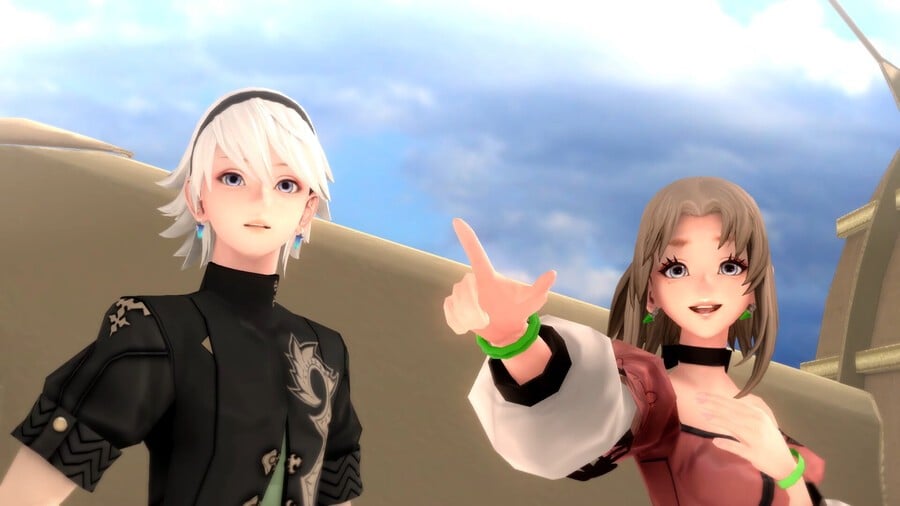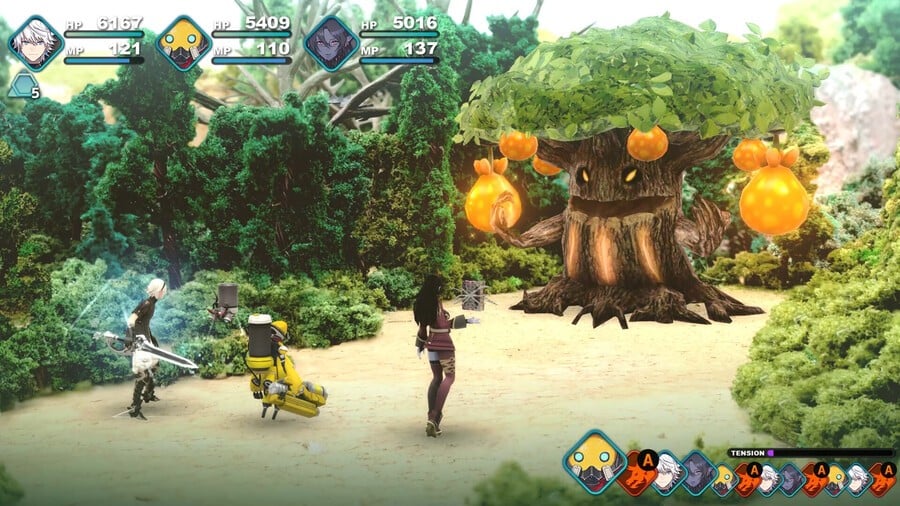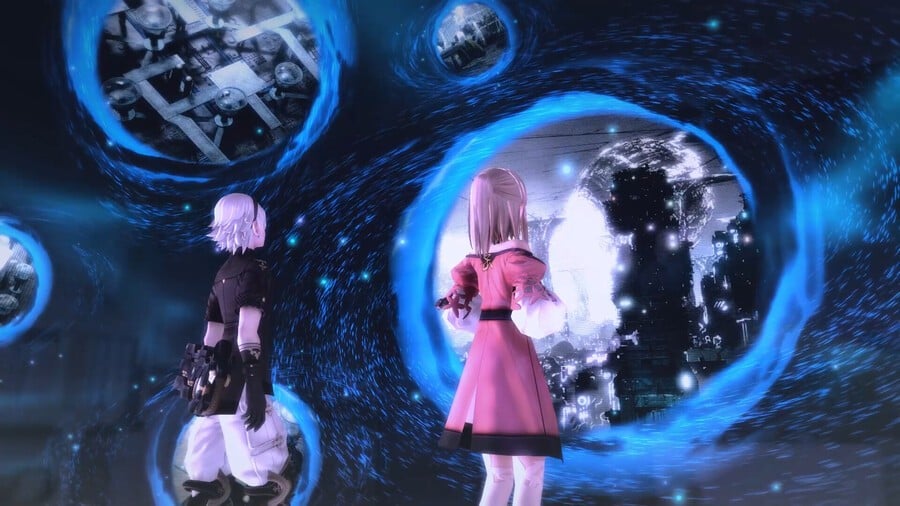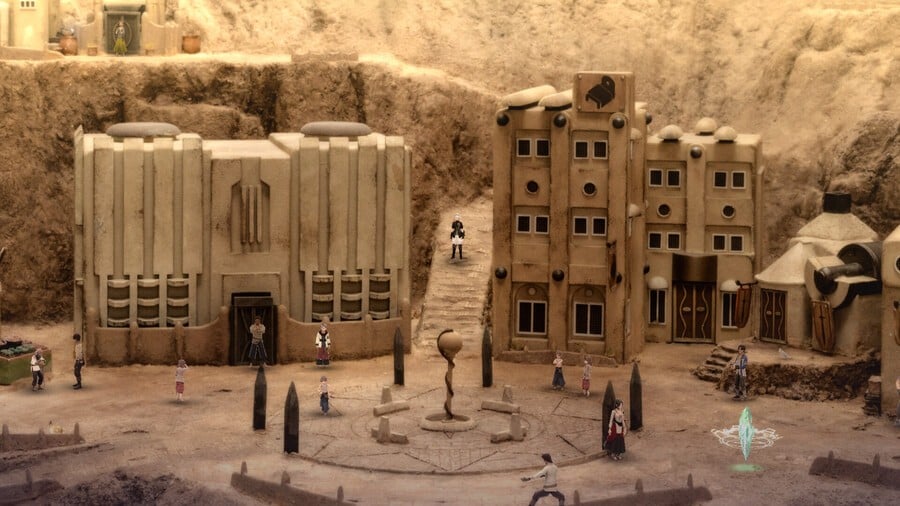Fantasian Neo Dimension is an updated version of the original Fantasian — an Apple Arcade release from a few years back. It’s produced and written by Hironobu Sakaguchi, who’s often referred to as the father of Final Fantasy — and so when we were handed an opportunity to interview the man himself, we couldn’t possibly say no. Ahead of Fantasian’s first foray on PlayStation platforms, we asked Sakaguchi-san about the game as a whole, its development, and his own return to PlayStation after so many years.
Push Square: As a PlayStation website, a lot of our readers may not be familiar with Fantasian. Could you start by giving us a brief overview of what the game’s all about?
Hironobu Sakaguchi, producer and writer: Fantasian is quite a unique RPG experience. One of the biggest elements that makes it so is the environments and all the stages are handcrafted dioramas. So players will explore and adventure through these different handcrafted environments and worlds. I think that the feel and the look is something quite unique.
In terms of gameplay, it’s a rather orthodox turn-based RPG experience, and that’s because I thought, if this became my last game, and my retirement piece, that I would be okay with that. And at the same time, I had the opportunity to play and revisit Final Fantasy 6 — and it reminded me of where my origins were as a game developer.
So I know recently there aren’t many turn-based RPGs, which is why I thought perhaps there is still room for innovation, and therefore we included different game mechanics and different game systems that I think kind of enhance the turn-based RPG experience.

Sticking with the topic of turn-based RPGs, obviously the genre has come a long way, and has branched out in all of these different directions over the years. Even going back to the original Final Fantasy, we’re talking decades of evolution. Fantasian’s maybe more traditional because of its turn-based system and structure.
Do you think there’ll always be a place for such traditional RPGs?
Take for example the movie industry. I think there’s always going to be a place for the cutting-edge action film that has a lot of VFX with over-the-top budgets, which I love on the one hand… but sometimes I feel like pulling out a classic film to take me back and experience something different.
So I think in the end, what we’re creating — whether it’s movies or games — is entertainment at its heart, and there are so many different flavours or directions that entertainment can go. So whether you’re a movie goer or a video game player, we’re humans. And I think the human mind and heart can experience a wide breadth of different types of experiences and emotion.
So I feel there’s always going to be some place or some itch that needs to be satisfied in terms of the different types of games that exist and players want to consume.
Fantasian originally released in two parts when it came to Apple Arcade in 2021. Can you give us some insight into how those two parts interact with one another? Is it like two games that are joined, or was the project ever envisioned as such?
And how does Fantasian Neo Dimension bring these two parts together?
At the midpoint of Fantasian, there is a huge shift in the type of direction of the story — the former half being more sculpted and narrative-driven, while the latter half is a little more free-roaming, where the player is able to choose what order and how they decide to traverse each dungeon.
So I think the game itself lends well to the two-part composition. And that, combined with Apple Arcade, at the time, was a very, very young platform. And Apple said, ‘Hey, if we can get this game out sooner, that would be great for the platform.’
So there was an interest and need for there to be more content frontloaded, which is why we thought, okay, to help facilitate the quicker release, we’ll take this first part of the story experience and release it, and then have the latter half come later.
That being said, the entire game of course is still going to be one unified experience when played from start to finish. Even with the Apple Arcade version, there were some smaller DLCs as well as quality of life improvements that have been added post-part two release.
So now, for the console version, all of that has been bundled into one seamless package and experience.

Looking back on Fantasian now, when it first released in 2021, has your opinion of the project changed? Is there anything you might have done differently, or do you look back on it with a fondness?
I think even looking back now, the 2021 initial Apple Arcade release of Fantasian is quite a good game, and if I do have to add any commentary to that I would say because I thought that Fantasian would potentially be my retirement piece — the last game that I make — I think I perhaps made the balance a little too difficult. It’s very peaky in terms of, you know, peaks and valleys in the difficulty curve [laughs]. And we skewed heavier on the more difficult and challenging side.
But when working with Square Enix, of course the underlying concept for this version of Fantasian was for more people to be able to access it. So again going back to my origins, I knew the game had to be more entertaining for a wider range of audiences, so making it feel very satisfying when defeating a boss, or very fun — for balance we went through the entire game and adjusted it all again for the consumer console release.
Another comment I can add is at first I didn’t think about voiceover or acting in the game, and I think as a producer I don’t really rely too much voice acting in my games looking back — I’m not sure I felt it was necessary. But working with producer [Naoki] Yoshida from Final Fantasy 14 — in Square Enix he was kind of my main touchpoint — he’s a much more modern or cutting-edge game producer, I guess you could say. And he talked about the importance of having voiceover in games.
So he gave some really good advice, and helped with the casting process. And now, playing Fantasian with the English and Japanese voices in it, I can really feel a lot more of the characters’ emotion, I guess you could say, captured. So it was a very moving experience, and I’m thankful for his advice.

One of the things Fantasian does quite differently is its ‘Dimengeon’ system — which is obviously a mix of ‘Dimension’ and ‘Dungeon’. From what we understand, the system lets you skip random battles and add them to the ‘Dimengeon’, meaning you can come back to them later.
Where did this concept come from, and how did it develop over time?
Fantasian I think as a game, a lot of the focus and a lot of the value, you could say, that players experience is being able to walk through these handcrafted dioramas. As I was developing the game some of the most moving moments or exciting moments I had were when I would see a diorama physically completed and I’d get to look at it. But also, when that diorama is then imported into the game and I get to walk through the diorama — that was a very, very fun moment for me.
So as the game was progressing and development was progressing, a new stage was added and I was walking through it and having a lot of fun, and then these random encounters just ruined the experience for me, of getting to walk through different dioramas [laughs].
I thought, ugh, you know, this is so annoying — so in order to let players explore and immerse themselves more in this handcrafted diorama-based world and environments, I proposed a question to the development team: is there a way we can allow players to do this without breaking the game, without interruption of random encounters — but also maintain the integrity of a random encounter RPG mechanic?
And the answer we had was the Dimengeon system!
Staying along those lines, it sometimes feels like atmosphere is such an underappreciated part of RPGs. A lot of more modern games are about keeping players busy, keeping them moving as if there’s no time to stop and take in the view.
But so many classic RPGs give players time to stop and take in the atmosphere, through visuals and music. Do you think these elements can be pivotal when it comes to creating a great RPG?
I think, definitely in certain Final Fantasy games throughout my career and in certain periods, I realised the importance of the tone, the mood, the atmosphere — and this is evident in some of the commentary from the fans and the audiences. They sometimes say, ‘I just stopped, put the controller down, listened to [Nobuo] Uematsu’s music and his composition as I just experience and be in the world of the game.’
So the amount of value there that players found is interesting, and with Fantasian kind of going back to my origins as a game developer, I thought it would be good to answer that need or that demand. So allowing players this moment where they can just immerse themselves, just listen, feel the mood, feel the atmosphere, where there isn’t constantly something pressuring them to do another quest or collect items or whatever — where they could just kind of take it in… I thought that was important as a different kind of value for Fantasian.

And finally, is there anything that you’d like to say to our PlayStation-specific readers?
Since I had founded Mistwalker almost 20 years ago I haven’t released anything on PlayStation, so you could say it’s been a very, very long time since one of my games was available for players on the PlayStation console family.
And whenever I hear ‘PlayStation’ I go all the way back to Final Fantasy 7, because I think there are a lot of memories and a lot of different emotions associated with that game, what it represented for me and Square Enix as a whole. It was the first time we challenged CG graphics, it was the first time we released something on PlayStation, I think there was a lot of risk-taking and a lot of exploration, a lot of adventure that happened, as a dev team for Final Fantasy 7 and the PlayStation console.
So, coming back after such a long hiatus on the PlayStation platform, I think there’s definitely a moment of reminiscing as well as this kind of newfound excitement. I know with Fantasian we’re not taking any huge risks like we did with Final Fantasy 7, but I think a similar emotion is kind of tickled within me [laughs], when I think about my game coming to PlayStation consoles.
Huge thanks to Sakaguchi-san for taking the time to answer our questions. Special thanks to our translator Mikey, and the team at Square Enix for making this interview possible.
Fantasian Neo Dimension releases for PS5 and PS4 later this year. Are you looking forward to this RPG’s debut on PlayStation? Get ready to explore some dioramas in the comments section below.

